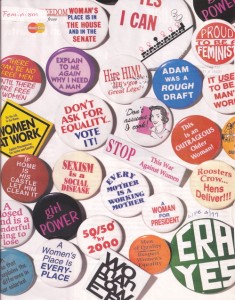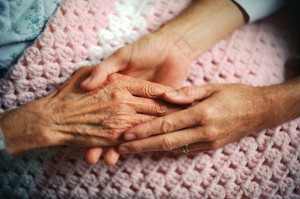The following is an excerpt of the debate on how to support women who want to re-enter or remain in the workforce, which took place during the Feb 28-29 and March 5 sittings of Parliament.
Ang Wei Neng
Member of Parliament for Jurong GRC
Many women who stopped work to take care of their families, would like to go back to work. The employment rate for women aged 25 years to 54 years old rose from 71.7 per cent in 2010 to 73 per cent last year. Apart from providing childcare support and flexi-work arrangements, we can certainly do more to help back-to-work women return to the workforce.
I would like to propose that the same Special Employment Credit (SEC) scheme be extended to employers who hire back-to-work women or ex-offenders. Companies can receive SEC for up to one year if the new hires are back-to-work women or ex-offenders.
Of course, the scheme needs only to cover those who are 50 years old and below. With this revision, we can tap on our latent pool of back-to-work women and ex-offenders to cover any shortfall in foreign workers that we currently need.
Lina Chiam
Singapore People’s Party’s Non-Constituency Member of Parliament
Compared to their counterparts in developed countries in the West, the labour participation of Singaporean women tends to fall much earlier in the course of their lifespan. And since the economic development of Singapore was achieved within a shorter and at a later point of time in history than most developed countries, it also means that older Singaporean women today are less likely than their counterparts to have gone to university. This has crucial implications for late-life employment.
All these point to the problem of income inadequacy for older women, especially when they are physically unable to work. They have longer life expectancies than men, but the assumption of our CPF policies is still that men are the main breadwinners in these families, and that CPF payouts for older women largely assume that they depend on their husbands – if they are even married in the first place.
Sadly, some of our younger women today may also face these concerns when they grow old. We still hear many complaints of wrongful dismissal of women from work when they are pregnant. This may be more an issue of employment practices, but CPF policy is integral here too. In developed countries like Sweden, for instance, women can get pension credits when they are on maternity leave, in recognition of their role as caregivers. This calls for a substantial re-think of the CPF model, to build a better social safety net for older women.
Grace Fu
Senior Minister of State for the Ministry of Information Communications and the Arts, and the Ministry of Environment and Water Resources; Member of Parliament for Yuhua; Chairman of the PAP Women’s Wing executive committee
Many of us here are familiar with house visits. We visit our constituents, from house to house, checking on their state of affair. Very often, we are greeted by a woman at the door. Typically, we greet each other and ask, “How are you?” For most of them, we get the standard reply, “I am fine.” “Ho bo?” “Ho!” After conducting house visits for several years, I have learnt not to take the reply for granted. I would look for non-verbal clues from the resident. Does she look at ease? Is she in good physical and mental health? Is her household reasonably furnished and maintained?
After these few years of doing house visits, there are several faces that had left a deep imprint in my mind.
The first, a young woman, not much older than a child herself, with a young child in toll. With a maturity far exceeding her age, she tells you of her desire to recover from her mistake in life choices made when she was younger. Having dropped out of school prematurely, she can only take on low-skilled jobs and therefore low-paying jobs. She is a tenant in the flat, paying a substantial part of her income as rent, as her father was not prepared to accommodate her. Her mother and siblings help from time to time but she relies largely on her pride to take life one day at a time.
The second face belongs to a woman in her 40s, timid and tentative. She tried to appear strong in front of her visitors but her sense of insecurity and unease was palpable. Her husband was retrenched recently and the family financial situation has been affected. She has not worked for many years. Her sister has been helping out but determined not to rely on her for much longer, she wants to support her two daughters who are studying in the polytechnic and secondary school. She is looking for a job that is near her home and allows her to get back early in the evening to cook for her children.
The third and final one belongs to a woman in her 50s. She is single, staying with her mother. Being the unmarried child, she assumes the caregiver role for her elderly mother who needs regular medical care. Her mother is ageing and increasingly unwilling to get out of the house for fear of falling. She has to assume most of the household chores, cook for the two of them, and accompany her mother to her medical appointments, which are getting more frequent and complex with multiple specialists in multiple hospitals.
Her face showed her fatigue and her worry. Her worry is not just one of short-term nature. Her worry is also for herself 20 years from now − who will look after her like she has done for her mother? With very little savings left for herself after her late father’s medical expenses and her mother’s expenses, she has very little left in her Medisave and her savings. Who will pay for her medical and retirement needs when she needs them most?
This year’s Budget will help the women that I have just described. Allow me to explain.
I am delighted that this Budget made specific mention about helping companies attract local workers and doing more to tap the latent pool of local manpower which is still available, including the homemakers. The Minister recognised that attracting these Singaporeans require a few changes. Jobs will have to be re-designed with the worker in mind. These jobs will also have to pay enough for the workers to join the company and stay with the company. In addition, companies will need to put in place more flexible working hours, shift system and work arrangements, including working from home.
This will be challenging to companies which do not now have the administrative capabilities to manage a more complex HR and payroll function. The Budget recognises these challenges. It has put forward SME Cash Grants and Productivity and Innovation Credit as schemes to help companies restructure. I hope that the schemes will be accessible to the SMEs and there will be help from the Government agencies to improve the HR capabilities across employers, across the entire system, including those in the people sector.
Single mothers will benefit from these changes in particular. Since they have to shoulder both work and family responsibilities on their own, many need a workplace that provides flexible work arrangements while bringing home a regular income.
For single working mothers with young children, their children will need affordable childcare service. Childcare support was enhanced in 2011 with the income ceiling raised from $1,800 to $3,500 per month. This Budget will provide further financial support for children from less well-off families. Baby Bonus, however, remained inaccessible to single mothers. As I was told by one single mother just last night: “Baby Bonus should be for the education and healthcare of the baby, and not to reward the parents for getting married”. A child-centric policy will help to level the starting point for her child.
Even as a more flexible working arrangement makes it more attractive for homemakers to return to work, their concerns will be the need for a conducive care environment for their children after school, and supporting their children’s development needs outside school. The best way to allay these fears and help women return to work is to support the after-school care system and to provide more opportunities for affordable enrichment programmes.
This Budget has proposed raising the income criteria for subsidies and financial assistance for pre-school centres, MOE schools and student care centres. While we encourage families to find employment to improve their family income, families sometimes find their financial assistance reduced as the mother returns to work. The move to raise qualifying household income criteria will cushion the impact and reduce the disincentive for the homemaker to return to work.
The young single mother would be pleased to know that she will get more financial support for the childcare arrangement of her child, more training opportunities and therefore better career options for herself. She will still have to cope with high rental as housing options remain limited for her. Baby Bonus continued to be inaccessible. The mother of two teenage girls will have a better chance of getting a job that meets her needs, more financial help in GST Voucher, and better financial and social support for her family, including better education and more opportunities for her children.
The single older woman will be pleased with the additional options of home-based care and domestic foreign helper for her elderly mother so that she can continue working and build up her retirement savings. She will also get additional financial help in the form of Medisave Top-up and GST voucher for her mother and herself with the peace of mind that the help will be there for many years.
What is noteworthy is that while this Budget has introduced many changes – permanent GST Vouchers, per capita income criteria, subsidy for home-based care, and so on – some basic principles remained unchanged. This Budget put in place a more robust framework to redistribute income so that the lower income segments of the society benefit more.
But it goes beyond redistribution. It is about helping people to help themselves, achieving self-reliance in the long run. Childcare for the single mom so that she can work and training opportunities for better paid jobs over time; improved employability and more flexible work arrangements, for the middle-aged mother and opportunities for her teenage children to better their lives through education; support to care for her elderly mother so that the older single woman can remain gainfully employed with peace of mind. Give them a leg-up, so that they can get back on their feet and be self-reliant again.
Family support remained the other important tenet of our social policies. It would be better for the single mother to stay with her family and for the elderly women to continue to be cared for at home with her other children chipping in to support her.
These basic tenets are important distinction between Singapore and other developed countries – that we, as families, assume the primary responsibility of caring for ourselves; that we retain a strong work ethic and desire to be self-reliant. Women in Singapore believe in these principles. They take pride in themselves, want to live independent lives, and take good care of their family. They will be reassured knowing that the Government and the society will provide support if and when they are unable to cope with life’s demands on their own.
Patrick Tay
Member of Parliament for Nee Soon GRC
TODAY carried a report of a lady being terminated after she discovered she was pregnant and informed her bosses. On wrongful dismissal complaints filed by pregnant women which had increased by 33% to 112 cases in 2011, more than nine in 10 of the women who filed complaints last year were sacked during pregnancy.
Furthermore, women, particularly PMEs, who leave the workforce for extended periods to look after their child or children also find it extremely difficult to return to their previous occupations.
My final area of concern is with regard to strengthening measures to help female PMEs cope better with the challenges of managing their careers and raising their families. The lack of family-friendly work practices and flexible work arrangements is forcing many women to delay starting their families or even worse give up their careers.
May I ask the Minister what more could be done to introduce a more conducive working environment for back-to-work women, in particular, female PMEs who wish to re-join the workforce after an extended period away from work? Without flexible work arrangements, it would be difficult to encourage our families to have more children. I am aware MCYS is aggressively developing our childcare services and providing support from various angles. However, we also need to get employers to provide better work-life balance as this is critical to support women with families.
Halimah Yacob
Minister of State for the Ministry of Community Development, Youth and Sports; Member of Parliament for Jurong GRC
More mothers could now go to work or remain in the workforce knowing that their children will be taken care of. This continued focus on education and children’s development are important to ensure that social mobility continues to be, not only a hope but an achievable reality for our low-income Singaporeans. I dare say that many of us are here today in this Chamber because of social mobility. Although an MCYS survey shows that social mobility is still alive today, it also warned that we cannot expect the same level of mobility for subsequent cohorts.
Many women from our low-income and needy families want to work to earn an income to support their family or to supplement the family income. Quite a number are also single mothers and may be the sole breadwinners. They want to be self-reliant and avoid having to depend on the Government for social assistance. Despite our enhanced childcare subsidies, many of these women cannot work outside their home because they may not only have young children to take care of but also frail elderly parents. Some are also suffering from disabilities or other illnesses, which make it difficult for them to secure outside employment.
One way in which many of these women could earn an income is through running a home-based food-catering business. They love cooking, something which they have been doing for years for their own families. However, recently many had received warning letters from the NEA and they are worried and confused, and their source of income has been disrupted.
A couple of weeks ago, I was invited by Dewi, the women’s arm of the Singapore Malay Chamber of Commerce, which held a dialogue jointly organised with Berita Harian. This was a dialogue session which was attended by more than 300 women. The women strongly appealed to the Government to relax its rules prohibiting home kitchens. They were told to cook at central kitchens, which are commercial cooking facilities. But many cannot afford the rent and other related costs, and because of their caregiving responsibilities they cannot work outside their homes. So using a central kitchen is not a viable option for them.
The women understand and are mindful of NEA’s concerns over hygiene, safety and neighbours’ complaints. Therefore in their proposal, they had suggested various measures to address these concerns including even devising a contraption to absorb smoke, grease and smell from their cooking.
I would like to urge NEA to look into this proposal. The spirit of this Budget is to build an inclusive society and a stronger Singapore. It is in this context then that we should view the appeal from our needy women to allow them to operate home-based kitchens. Their main desire is to be self-reliant and to enjoy a steady stream of income doing something which they are really good at, which is cooking. Through this, many of them aspire and hope to build a better future for themselves and their children.
Still on the issue of women, Sir, I note our efforts to attract more women back to work through the Flexi Works! scheme and the WOW! Fund. Thousands of women have gone back to work under the NTUC’s Back to Work programme since it started in 2007. But these two schemes have been in place for a few years now, so it is timely to review and reassess how to make them even more effective and relevant to the needs of businesses and our women as feedback suggests that an overhaul is needed. Also, with the cutback on foreign manpower, non-working mothers will become a very valuable resource for employers to tap on and we could do more to facilitate their employment.
Fatimah Lateef
Member of Parliament for Marine Parade GRC
Surveys in Singapore have shown that gender ratio equality in workplaces is maintained at only the entry level. As we move up the corporate hierarchy, there are significantly lesser females than males. Women hold about 7 to 8 per cent of boardroom positions in listed companies in Singapore and we have only about 20 per cent women in Parliament.
Women continue to make much sacrifices − they drop out or go part-time in the workforce much earlier than men, what with their share of family responsibilities, child and aged parental care activities. They are the ones usually making career adjustments in a marriage and, in today’s context, may even have to delay marriage and parenthood over socio-economic considerations.
Women need flexibility in work timing, more home-based work and part-time work with childcare arrangements. In Singapore, there are now some 40 per cent of untapped women labour power. How can we make it attractive for them to come and join the workforce? How can we train them? When are our work places going to all be pro-children and child-centric? They can be the answer to our challenge to increase the productivity by 2 to 3 per cent per annum and to 30 per cent in a decade. We need to think out of the box in order to reap the benefit from this.
There are also the single-parent families, divorced and widowed women who need even more time and support and more help. What about women with children born out of wedlock who do not qualify for pro-family policies, baby bonuses, Child Development Account rebates, housing, and so no, and are frowned upon in society? So perhaps we need some tweaking to be done.
Even from the Fourth Periodic State report for Convention on the Elimination of All Forms of Discrimination Against Women (CEDAW) on 22 July 2011, there were recommendations for Singapore from CEDAW human rights experts to enhance our inclusivity in society. And some examples include: to incorporate the CEDAW Convention into Singapore’s domestic laws; to ratify the UN Protocol to prevent, suppress and punish trafficking in persons, especially women and children; and, to adopt legislation on sexual harassment at the workplace and schools, including sanctions, civil remedies and compensation for victims. There are quite a few others.
Tan Su Shan
Nominated Member of Parliament
In 2010, the numbers showed that 71.2 per cent of the women aged between 25 and 64 are working, up from 69.4 per cent in 2009. But for older women, aged 55 to 64, the figure is still very low at 43.4%. The good news – there is plenty of help available to help younger working women get back to work. From the Back To Work and Flexi-Work programmes started by government agencies, to websites like Careermums.com to Mums@work to the newly formed WEWAM, (it is a nice name! It stands for Women Empowered for Work and Mothering), there seems to be plenty of outreach programmes.
What this House and the Ministry perhaps should know is that there are also many women’s groups and associations who have stepped up to help. These groups tend to be sector based, and one such example, if I may, is the Financial Women’s Association, which have helped women in finance who lost their jobs during the Lehman crisis, find new jobs, and who are still championing the networking of women who wish to return back to work in the financial sector.
The Singapore Council of Women’s Association has also successfully pioneered the Women’s Register to mentor women needing help in the workplace. However, these many outreach programmes need support in order to succeed, especially to reaching out to the women who need help, and especially for older women who may not be that Internet savvy. These women’s groups are run by full-time working mothers like me who have limited time and resources and, hence, in order for them to be more effective, they need funding, administrative and execution support for their various initiatives.
They will also need some time and some help in advertising some of their good work that they can do, in order to reach out to a wider audience and in order to place more women in the right sector and in the right jobs. So, my suggestion is – may the Ministry provide some umbrella support to these various women’s groups and to help link women looking for job with the right association and the right channels that are already available?
Mary Liew
Nominated Member of Parliament
We still have a large proportion of women who are not working but are contributing meaningfully to their families. We noted that women with young children aged between 0 and 12 years old are more likely to quit the workforce to focus on the development of their children.
Unlike the developed countries like Sweden, Finland and Norway, we do not have a double hump for women’s participation in the labour force. Our women leave their jobs to take care of their children and many never return to the workplace and thus resulted in a single hump. The longer the women stay out of the workforce, the more challenging it will be for them to return. Most employers also become more reluctant to employ them. I think we should take the approach of prevention is better than cure.
As women become more educated and more are carving a niche for themselves in their careers, they find themselves hard pressed because of the lack of flexibility in how work is being done. If we are going to call ourselves an inclusive society, then women should be given the opportunity to work, have a family and be able to take care of their loved ones while still having a career with progression and decent pay. And the only way to do so is to ensure that we have a culture that supports flexi-work in our workplace.
Getting women back to work is not just providing a lactation room but also requires the support and the change of mindset of employers and fellow workers to provide the conducive and supportive environment so that our women can return to work and juggle their responsibilities, to have a work life balance without having to feel guilty that they could not perform their multiple roles well and ultimately they have no alternative but to quit their jobs.
We would like to see more support from the employers who are willing to offer flexi-work arrangements and are willing to do job re-design. Given that there is a tightening of foreign labour, I think this is the best time for us to really look at tapping on this available pool of women to encourage them to come back to the labour force.
Allow me to share the case of Joanne that the NTUC’s Women Back to Work Programme has helped. She is 40 years old and she has one eight-year-old child and a sickly father. She is a graduate working as a bank officer earning some $3,000 a month. Joanne quit her banking job in 2005 when she found that she had to juggle between her young daughter, who was 1 year old then, and her father who suffered a stroke.
In 2007, after nursing her father back to health, she decided to return to the workforce. After trying for a year, she was very disheartened that no employer was willing to consider her at all. Subsequently for Joanne, she came across the NTUC Women’s Development Secretariat (WDS) who worked with enlightened employers who were mindful of the gap. In October 2008, they finally secured a job for her with a financial company as a deals executive. Today, I am glad to say that she is still employed as a senior executive.
I believe that for every Joanne that we helped, there are many more out there needing support, especially our female PMEs. Besides the existing efforts that the Government has made, I would like to ask the Ministry to consider the following:
(i) being the largest employer to take the lead by creating more flexi-work for women in the public sector;
(ii) to consider some forms of incentive or tax relief to help women who do not rely on domestic help but very much dependent on nannies or their relatives for child care help and support. And I think this will also continue to encourage women to return to the workforce;
(iii) I support the call by Mr Ang Hin Kee to extend the Special Employment Credit to employers to recruit back-to-work women in the workforce.
(iv) to launch annually a nationwide Flexible Work Arrangement (FWA) Campaign to generate more awareness as well as to encourage companies to implement FWA in a more concerted way;
(v) besides offering flexi-works funding to companies, try to make it fit the process of claim user-friendly and also make it more attractive to tap on, with minimal restrictions and administrative procedures;
(vi) to adopt additional measures to support back-to-work PMEs who face greater obstacles compared to the rank and file women as opportunities are even more limited for them, including developing a database of both the employers and the back-to-work PMEs to support job matching efforts.
Last but not least, I would like to ask the Government to make every attempt to encourage our women to return to the workforce. They have gone through the different challenges in life and are mature and responsible. I am confident that most will be resilient to stand by their employers. Especially during the tough time when the company is facing crisis, you will see that women are like tea leaves — you will never know their strength until they are in hot water. We will be there for you.
Tan Chuan-Jin
Minister of State for the Ministry of National Development and the Ministry of Manpower; Member of Parliament for Marine Parade GRC
Mr Teo Siong Seng proposed waiving CPF contributions for employers who recruit home-makers for part-time work. Now, while this may lower the cost of hiring these workers, it will be, in their case, at the expense of their retirement adequacy because many of them would have very little CPF to begin with, because they have been out of work for a long time. Many home-makers actually choose not to rejoin the workforce largely because of a lack in suitable flexible working arrangements, or because they lack the confidence and skills to go back to work.
Hence, our approach is to both tackle the barriers to them re-entering the workforce as well as to give them the opportunity for skills upgrading through CET. As Members Mr Low Thia Khiang and Ms Mary Liew pointed out one of the first things that needs to be done is to promote flexible work arrangements. Flexi-Works! scheme and the Work-Life Works! (WoW!) Fund help companies do this. In 2010, 35 per cent of establishments offered at least one form of work-life arrangement to their employees, up from 25 per cent in 2007.
Despite the progress, there is still much that the Government and tripartite partners can do. During the Budget debate, Madam Halimah called for the review of our assistance schemes. Ms Mary Liew also asked if we could make these schemes more user-friendly and less restrictive.
So, together with our tripartite partners, we will review and improve Flexi-works!
Home-Fix is one company that has tapped on the Flexi-works! Scheme. They offer flexible work timings and permanent part-time arrangements which allows them to hire economically inactive persons such as housewives, who are then able to then balance work and care-giving responsibilities.
Ms Georgiana Francis is one such employee who managed to re-enter the workforce, even while she had a young child to care for, due to the permanent part-time arrangement offered by Home-Fix. Clearly, providing flexibility in working arrangements can attract economically inactive persons back to the workforce and allow workers to better manage both work and family responsibilities.
And as we begin to tighten the workforce in terms of the availability of the foreign workforce, I think this is one area which companies should seriously consider expanding so that we can look at bringing more of these people into the workforce.












